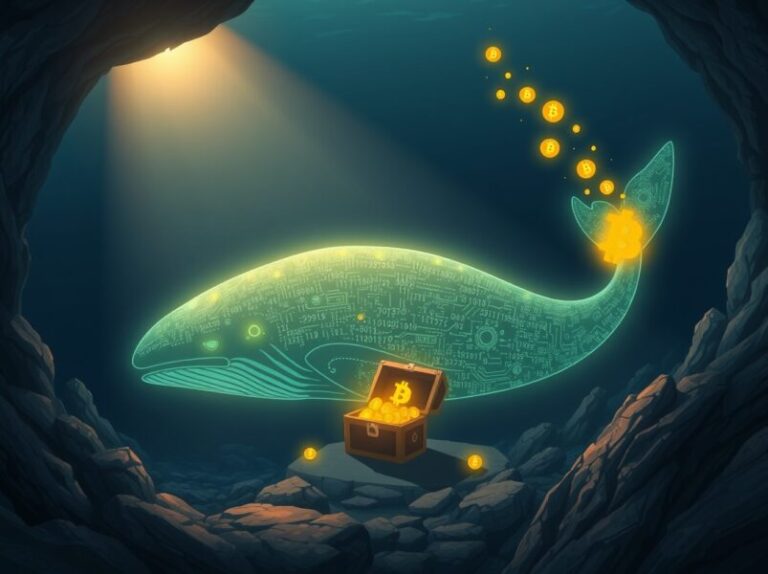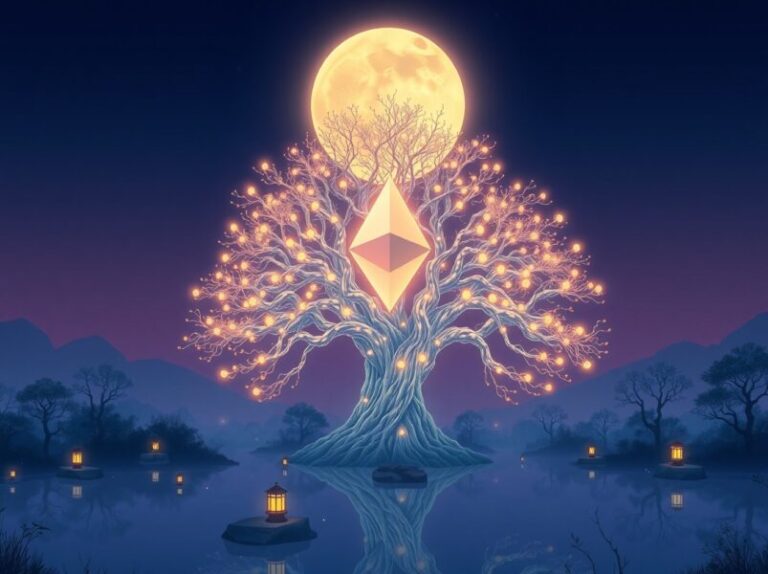The internet is undergoing a radical transformation. Web3, the next iteration of the internet, promises to shift power from centralized authorities to individuals. At the heart of this revolution are three groundbreaking innovations: Decentralized Finance (DeFi), Non-Fungible Tokens (NFTs), and Decentralized Autonomous Organizations (DAOs). Each plays a crucial role in reshaping the digital economy, offering …
Decentralized Finance, NFTs, and DAOs: Exploring the Web3 Ecosystem

The internet is undergoing a radical transformation. Web3, the next iteration of the internet, promises to shift power from centralized authorities to individuals. At the heart of this revolution are three groundbreaking innovations: Decentralized Finance (DeFi), Non-Fungible Tokens (NFTs), and Decentralized Autonomous Organizations (DAOs). Each plays a crucial role in reshaping the digital economy, offering new financial opportunities, ownership structures, and governance models.
Decentralized Finance (DeFi): The Future of Money
For decades, traditional financial systems have been controlled by banks, governments, and centralized institutions. Enter DeFi, a blockchain-based alternative that eliminates intermediaries and empowers users with peer-to-peer financial services. But what makes DeFi so revolutionary?
Key Features of DeFi:
- Permissionless Access: Anyone with an internet connection can use DeFi platforms without needing approval from banks or regulators.
- Smart Contracts: Automated agreements running on blockchains, removing the need for middlemen.
- Liquidity Pools & Yield Farming: Users can earn passive income by providing liquidity to DeFi protocols.
- Transparency & Security: Transactions are recorded on a public ledger, reducing fraud and increasing trust.
Popular DeFi Platforms:
- Uniswap & SushiSwap – Decentralized exchanges (DEXs) for trading cryptocurrencies without an intermediary.
- Aave & Compound – Lending and borrowing protocols where users earn interest or take out crypto loans without a bank.
- MakerDAO – A decentralized system for issuing stablecoins like DAI, backed by cryptocurrency collateral.
DeFi is reshaping finance by making it more accessible, efficient, and censorship-resistant. However, challenges like smart contract vulnerabilities and regulatory scrutiny remain obstacles to mass adoption.
NFTs: Digital Ownership in a Tokenized World
What if you could own a piece of digital art, a song, or even a virtual real estate plot? That’s where NFTs (Non-Fungible Tokens) come in. Unlike cryptocurrencies, NFTs are unique, indivisible, and verifiable assets stored on a blockchain, proving ownership of digital or physical goods.
How NFTs are Disrupting Industries:
- Art & Collectibles: Digital artists sell tokenized creations, ensuring originality and royalty payments on resales.
- Gaming & Metaverse: Games like Axie Infinity and platforms like Decentraland enable players to own in-game assets and land.
- Music & Entertainment: Musicians and content creators monetize their work directly through NFTs, bypassing intermediaries.
- Real Estate: Tokenizing property ownership on blockchain streamlines transactions and fractional ownership.
Notable NFT Marketplaces:
- OpenSea & Rarible – General NFT marketplaces for digital collectibles.
- Foundation & SuperRare – High-end digital art platforms.
- NBA Top Shot – Official licensed sports NFT platform.
NFTs have unlocked a new era of digital ownership, monetization, and creativity, but scalability, environmental concerns, and market speculation remain hurdles for long-term sustainability.
DAOs: The Future of Decentralized Governance
Imagine a company where decisions are made not by CEOs or executives, but by token holders worldwide. That’s the power of DAOs (Decentralized Autonomous Organizations)—entities that operate through smart contracts and community voting rather than traditional leadership structures.
Why DAOs Matter:
- Democratic Decision-Making: Every token holder has a say in governance.
- Transparency: All transactions and proposals are visible on the blockchain.
- Global Participation: Anyone, anywhere can contribute to decision-making.
Notable DAO Examples:
- MakerDAO – Governs the DAI stablecoin system.
- ApeCoin DAO – Community-led decision-making for Bored Ape Yacht Club ecosystem.
- CityDAO – Tokenized real estate ownership experiment.
DAOs are redefining governance, removing centralized control and empowering communities. However, they still face legal and structural challenges, such as scalability, voter participation, and security risks.
Web3: A New Digital Era or Just Hype?
Web3, powered by DeFi, NFTs, and DAOs, is undeniably reshaping the internet and financial systems. It promises greater ownership, autonomy, and financial inclusion—but challenges remain, including regulatory uncertainty, user experience barriers, and security concerns.
Despite these hurdles, Web3 is no longer just a concept; it’s a rapidly evolving reality. As more industries integrate blockchain technology, the dream of a decentralized, user-owned internet inches closer to becoming the norm.
So, are we witnessing a revolution or just another tech bubble? One thing is clear: Web3 is here, and it’s changing the game.








